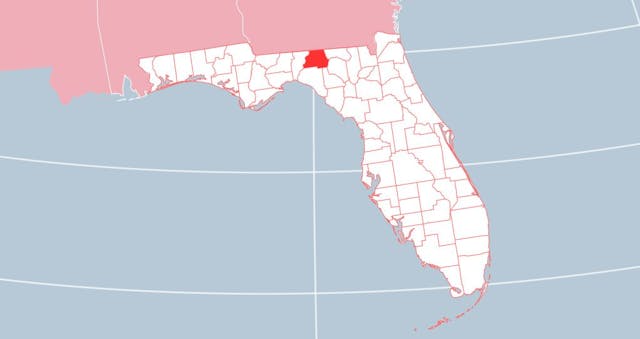Rehabs in Madison
Madison County is located in the state of Florida in the United States. As of the 2021 census, the population was 18,399. Compared to the previous year, it has recorded a decrease․
Madison is considered a wet county. That is, on August 28, 2012, the legal sale, distribution, or possession of alcoholic beverages became legal. Accordingly, it could not remain without bad consequences.
Parallel to this, there is an exponential increase in drug-related overdoses. With this in mind, Madison rehabs are working hard to reduce and prevent the risks of substance use.
Evaluation
Getting the evaluation of chemicals may serve different purposes. Firstly, if you need DUI evaluation and treatment you can apply to the “Centerstone” agency. Their services are designed for those who have received a court order.
Besides, they help individuals who want to reinstate their driver’s licenses. The first step of the assessment is an interview. According to it, specialists will determine further steps. Clients who need an in-depth examination will be sent for a test.
Afterward, “Smart Drug Testing” provides a full array of substance testing. The company includes testing that can be determined by urine, hair, and blood. DOT drug and DOT breath alcohol testing are also available here. For more details, call them at (800) 977-8644 by phone.
Lastly, there are also diagnostic centers that diagnose mental disorders along with addiction. In fact, many suffer from mental disorders alongside addiction. Therefore, for the right treatment, they must pass both diagnoses.
Types of Facilities and Treatments
More and more Americans are getting addicted to chemicals. Thus, rehabs in Madison provide comprehensive programs that help individuals overcome dependency easily.
Outpatient (OP)
OP is designed for those whose dependence on chemicals is mild. It does not demand 24-hour supervision. In this province, a clinic providing this level of care offers outpatient therapy with a duration of 1 to 25 hours per week. Thus, clients can combine their daily life with it.
Partial Hospitalization (PHP)
PHP is more intensive than OP. It suits people who need long-term care. Yet, clients spend the day at the facility. They can only stay at home at night.
Inpatient (IP)
IP or residential is designed for individuals who need around-clock care. Basically, the caring environment created by professionals keeps people away from everyday distractions.
Moreover, IP supports patients to concentrate on the recovery plan. Also, it helps them to learn coping skills.
Detox
Addiction and abuse treatments begin with detoxification. Generally, it refers to patients with severe dependency and abuse. Detox is the core of the cure. It causes withdrawal symptoms.
That is to say, toxins start to leave the body of an addicted person. As a result, it causes psychological, physical, and emotional stress.
So, because of its unpleasant feelings, people mostly avoid it. However, an intensive short-term and medically-supervised healing plan reduces the risk of negative emotions.
Types of Specialty Facilities
Specialty centers offer special programs for certain groups of society. They are usually the most vulnerable class of the population.
Veterans
According to research, 1 in 3 American veterans suffers from mental and behavioral disorders. Along with these, many of them develop a dependence on substance use disorders (SUDs).
Eventually, the majority of them commit suicide. Hence, experts offer a special treatment program that balances their mental order and keeps them free from addiction.
The Price for Luxury Services
If you are searching for high-up cure programs for you or your loved one, you should know that their prices are significantly higher. In this county, it can cost up to $18,000. The duration of the cure is 30+ days.
Paying Without Insurance
There are various payment options available to everyone regardless of their ability to pay:
Scholarships
State funds
Medicare and Medicaid
Credit or debit cards
Sliding-scale
Out-of-pocket
Forcing Your Teen into Rehabilitation
American adolescents are at risk of substance usage. No family is safe and secure from it. In general, the vulnerable age of minors is 12-17.
Nevertheless, if teens do not use them by the age of 21, it is almost certain that they never will. In essence, being addicted is easier than recovering fully.
For this reason, parents should always supervise their children. Otherwise, the only solution will be to contact the relevant professionals. They will help you on this long journey.

